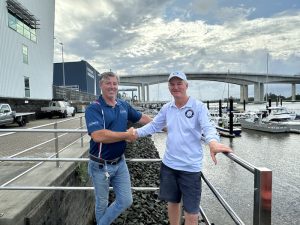Meta’s bold move: news blackout looms over Australia’s licensing fee standoff

- by Admin
- June 28, 2024

Meta, the parent firm of Facebook, will not rule out blocking news content in Australia should the government slap licensing fees. The regional policy director at Meta, Mia Garlick, gave testimony to this end at a parliamentary hearing on Friday.
Asked if Meta would block news content in the country, Garlick said “all options are on the table”.
“There’s a large number of channels that people can get news content from,” Garlick told the inquiry.
She said Meta was waiting for Canberra to decide on applying an untested 2021 law that gives the government powers to compel US tech giants to pay fees to media outlets for links.
These comments are the clearest sign to date that it might take on a similar aggressive stance in Australia as it did last year in Canada at the tabling of such legislation.
Meta cut deals with Australian media companies including News Corp and the Australian Broadcasting Corp when the law was brought in Australia, but has since announced it won’t renew these deals beyond 2024.
The Australian assistant treasurer has been left to decide whether to compel Meta FB to pay for news content. The assistant treasurer claimed that Meta seems to abide by the law only when it best serves the company.
Garlick explained that Meta might block news, as whatever it did would still be in compliance with the law. She added that Meta adheres to various laws, including tax, safety, and privacy laws, and therefore, the kind of compliance will differ in case this law is fully enacted.
“Every other law – tax laws, safety laws, privacy laws – we work to comply with,” she said. “It’s just compliance would look slightly different in relation to this law if it’s fully enacted.”
On the handling of misinformation and scams by Meta, Garlick said the content moderation centers cater to it from outside Australia, but there are reporting processes in place for Australians. She responded to concerns about scam ads-like those featuring Australian mining billionaire Andrew Forrest-by pointing out that detecting and stopping scams is very challenging, but Meta is indeed doing so.
How could Meta call itself an advertising business when “some ads sell lies”, asked Greens Senator Sarah Hanson-Young.
“We have policies and systems and tools to do everything we can to prevent those ads,” Garlick replied.
The Latest News
-
December 23, 2024Freedom Boat Club Announces its 10th Australian Location with its Newest Location Offering Direct Access to the Iconic Brisbane River – Marine Business News
-
December 23, 2024‘I felt horrible’: How Brett Lee went from an ill-fated threat to Test stardom in four balls
-
December 23, 2024QuickWin Casino: Your Fast-Track to Winning in Australia – Fantasy Football 247 – Premier League Tips
-
December 23, 2024China and India Are the Biggest Tourism Market for Victoria As This Australian City Attracts International Tourists with Sports Tourism – Travel And Tour World
-
December 23, 2024Christmas comes early for several Aussies after last-minute dash for tour status – Australian Golf Digest


